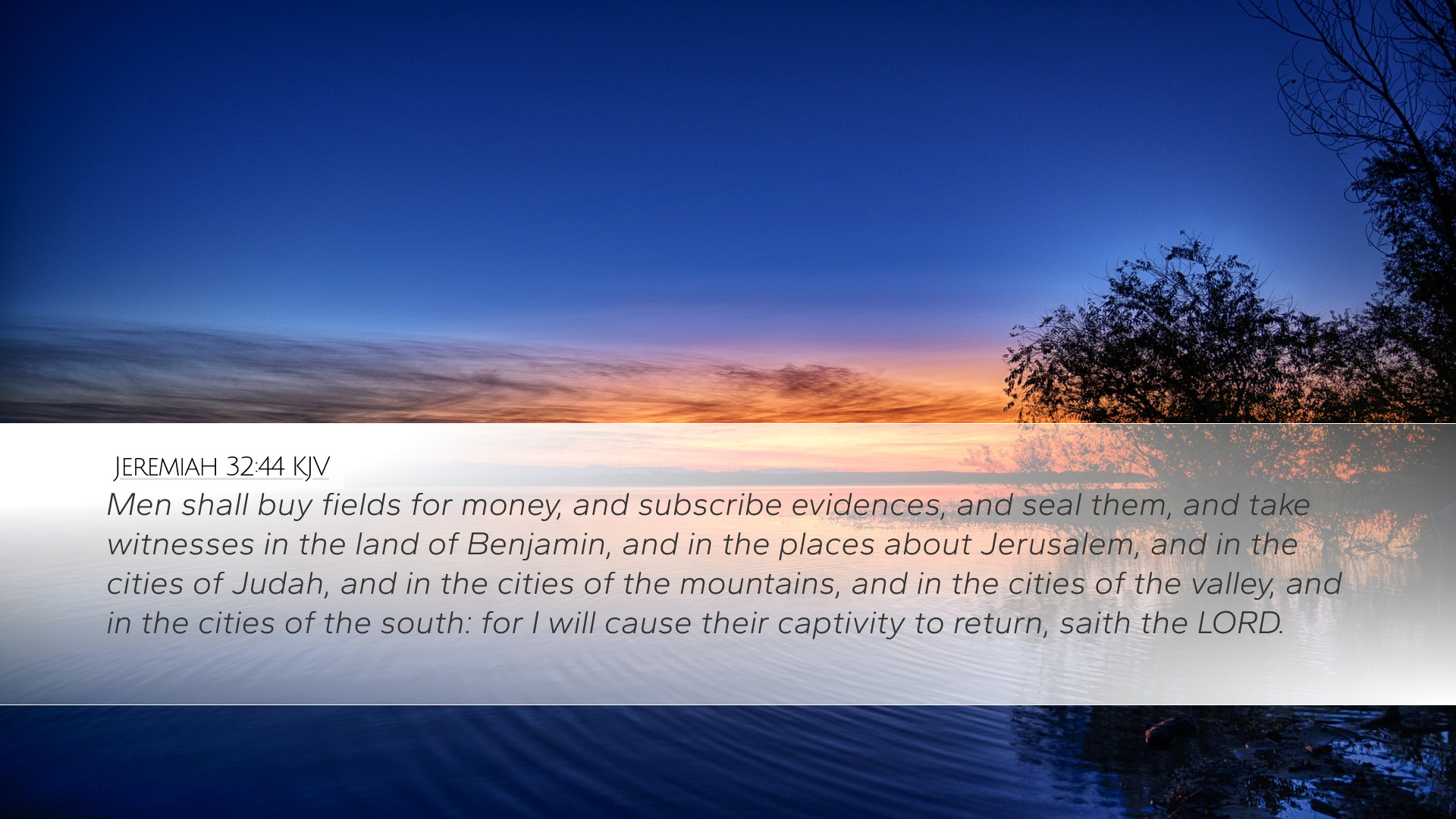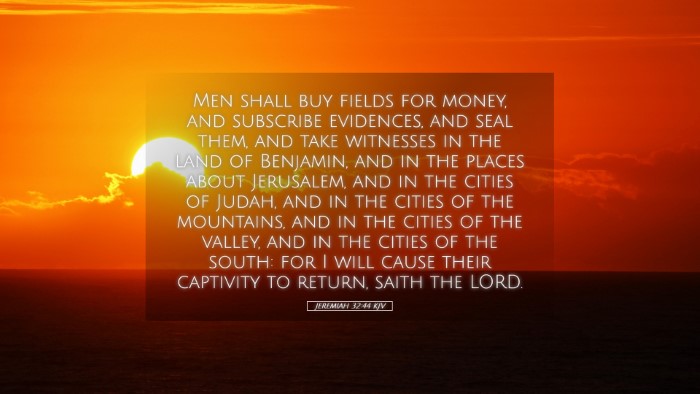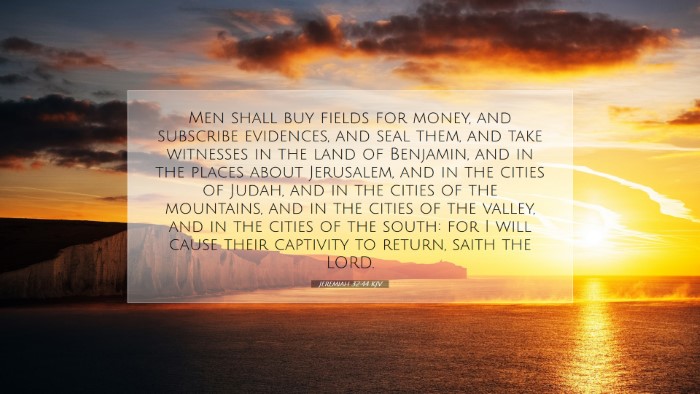Commentary on Jeremiah 32:44
Jeremiah 32:44 (ESV): "Fields shall be bought for money, and deeds shall be signed and sealed and witnessed in the land of Benjamin, in the places about Jerusalem, and in the cities of Judah, in the cities of the hill country, in the cities of the Shephelah, and in the cities of the Negeb; for I will restore their fortunes, declares the LORD."
Introduction
This verse occurs in the context of God’s promise of restoration to Israel, which Jeremiah delivers amidst the backdrop of impending destruction due to invasion. In this commentary, we will explore insights from prominent public domain commentators such as Matthew Henry, Albert Barnes, and Adam Clarke, focusing on the themes of hope, restoration, and the fulfillment of God’s promises.
Contextual Background
Jeremiah prophesied during a time of great turmoil for Judah, leading up to the Babylonian conquest. This particular promise comes after Jeremiah's purchase of a field in Anathoth, signifying hope in God’s forthcoming restoration of Israel. This act and this verse symbolize faith not only in a future return but also in God’s unchanging plan amidst chaos.
Theological Implications
The purchase of fields symbolizes several deeper theological truths:
- God’s Sovereignty: Despite the heart-wrenching circumstances, God’s plan remains intact. His sovereignty guarantees that there is hope for His people, irrespective of their current state.
- Faith in Action: Jeremiah’s act of purchasing land amidst imminent destruction exemplifies true faith. He believed in God’s promises and acted upon them, serving as a model for believers.
- Restoration and Renewal: The mention of future transactions emphasizes the idea of restoration. God not only brings judgment but also intends to restore the fortunes of His people.
Commentary Insights
Matthew Henry's Commentary
Matthew Henry emphasizes the faith demonstrated by Jeremiah. He asserts that Jeremiah's purchase of the field is significant because it showcases his unwavering belief in God’s promises for the future. Henry notes that when everything seems lost, God's assurance of restoration allows believers to confidently act in faith. He highlights God’s faithfulness, stating, "Though the nation is in ruins, yet God will make a way for it to prosper once again."
Albert Barnes' Notes
Albert Barnes further elaborates on the practical implications of this verse. He discusses how the signing and sealing of deeds represent legal assurance and certainty in God's promises. For Barnes, this act reinforces the truth that God is not only a promise maker but also a promise keeper. He asserts that the act of purchasing fields is galvanizing for the people of Judah, as it points to a future reestablishment of their home and livelihoods.
Adam Clarke’s Commentary
Adam Clarke offers a historical and practical viewpoint, noting the irony of purchasing land in a time of defeat. He reflects on the implications of such an act in terms of its social and economic aspects. Clarke frames this in the context of God’s sovereignty and the inevitable return of exiled Israelites to their homeland, emphasizing that although the present might be bleak, the future holds the promise of restoration. He concludes that this prophecy serves as a profound reminder of the faithfulness of God in every circumstance.
Practical Applications
For pastors, students, theologians, and Bible scholars, the insights drawn from Jeremiah 32:44 inspire several applications:
- Hope Amid Struggle: This passage encourages believers to maintain hope and act in faith even when circumstances appear disastrous.
- Understanding God's Promises: Reflecting on God’s past faithfulness can bolster confidence in His future promises, as seen in Jeremiah’s actions.
- Encouragement for Ministry: Ministers can use this passage to remind congregations that, despite current hardships in their lives or churches, God is faithful and restoration is possible.
- Faith in Practicality: Encourages actions that demonstrate faith, teaching that sometimes God calls us to do what seems illogical in the eyes of the world.
Conclusion
Jeremiah 32:44 serves as a powerful testament to God’s promise of restoration and the importance of faith in action. Through the lens of key commentaries, we gain a multifaceted understanding of the text that is applicable not only in its historical context but also in today’s spiritual journey. The act of purchasing land amidst impending destruction becomes a profound symbol of hope and expectation for future blessings, reminding us of God's enduring faithfulness and love.


